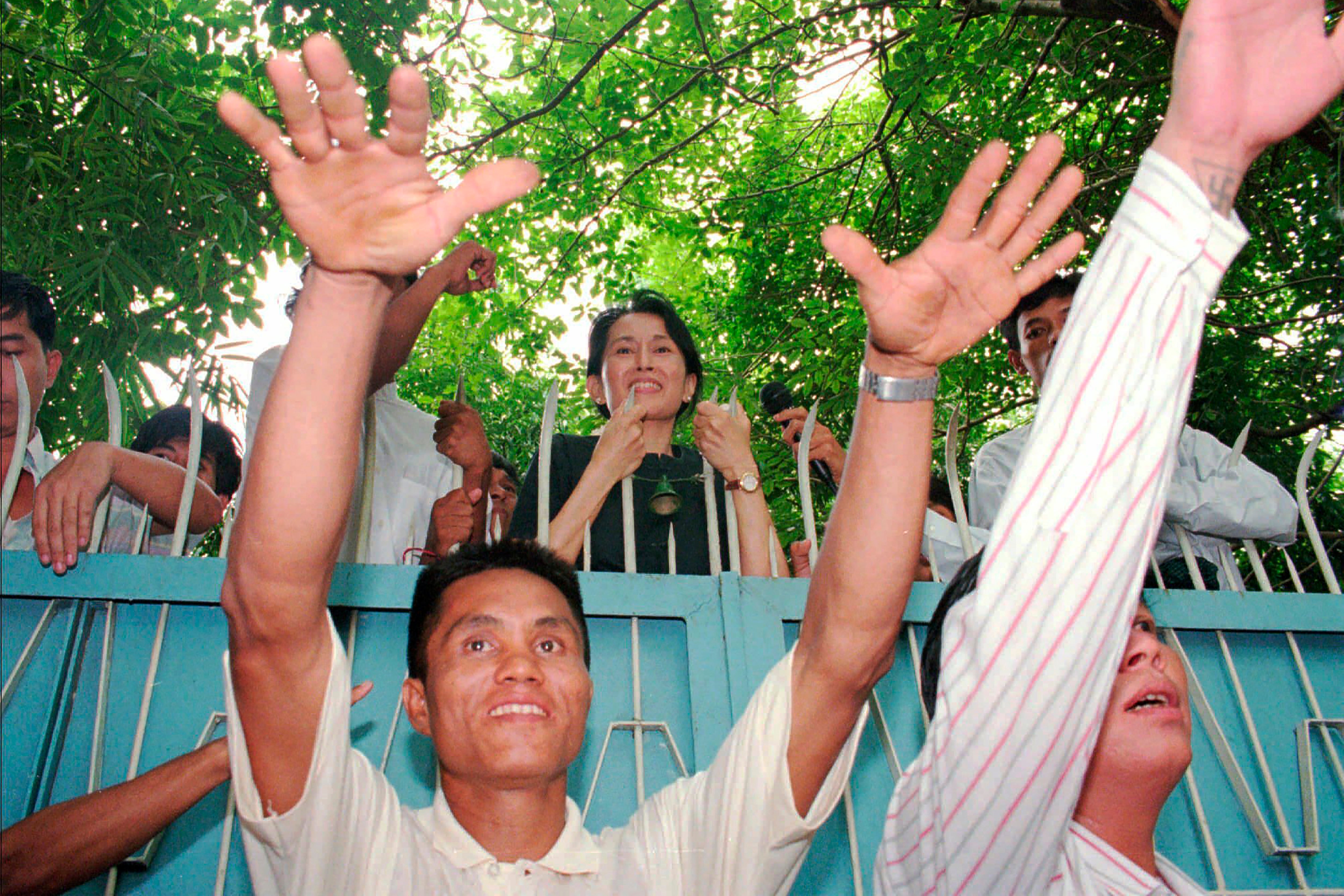A timeline of Myanmar's Aung San Suu Kyi's political life
Ousted Myanmar leader Aung San Suu Kyi is the daughter of the country’s independence hero, Gen. Aung San, who was assassinated in 1947, less than six months before the country, then called Burma, became independent from Britain

Ousted Myanmar leader Aung San Suu Kyi is the daughter of the country’s independence hero, Gen. Aung San, who was assassinated in 1947, less than six months before the country, then called Burma, became independent from Britain
Suu Kyi, 76, moved to New Delhi in 1960 when her mother was appointed ambassador to India and then spent most of her young adult life in the United States and England, where in 1972 she married Michael Aris, a British scholar of Himalayan studies at Oxford University.
Her career in politics began in 1988.
April 1988 — Suu Kyi returns home to attend to her ailing mother as pro-democracy protests erupt against the 26-year military rule of Gen. Ne Win.
Aug. 8 — Mass demonstrations are held throughout the country. Security forces open fire, killing hundreds or more.
Aug. 26 — Suu Kyi issues a call for democracy in her first public speech before a crowd estimated at 150,000 in Yangon.
Sept. 27 — Suu Kyi helps found an opposition party, the National League for Democracy.
July 20, 1989 — Suu Kyi is placed under house arrest, which continues on-and-off for 15 of the next 22 years.
May 27, 1990 — The National League for Democracy wins a landslide election victory, but the military government nullifies the polls and refuses to hand over power.
Oct. 14, 1991 — Suu Kyi is awarded the Nobel Peace Prize for her nonviolent struggle for democracy.
March 27, 1999 —Suu Kyi’s husband, Michael Aris, dies of cancer in England. The couple had not seen each other since 1995 because he had been denied a Myanmar visa and she refused to travel abroad for fear of being barred from returning to Myanmar.
May 30, 2003 — During a political tour of northern Myanmar, Suu Kyi’s entourage is ambushed and several of her supporters are killed during what is widely seen as an assassination attempt.
August 2007 — Protests over fuel prices escalate into the largest pro-democracy demonstrations since 1988. The movement, known as the Saffron Revolution because it is led by Buddhist monks, is brutally crushed.
Nov. 7, 2010 — The military-backed Union Solidarity and Development Party wins the first general election in 20 years after Suu Kyi’s party boycotts the polls, saying the rules were unfair.
Nov. 13 — Suu Kyi is released from years of house arrest.
April 1, 2012 — Suu Kyi wins a seat in Parliament as her party participates in by-elections after the nominally civilian government makes concessions on election laws.
Nov. 8, 2015 — Her party wins a sweeping general election victory. However, the military retains significant power under a constitution written and ratified under army direction in 2008.
Feb. 1, 2016 — Parliament is convened, with Suu Kyi's party commanding a majority. It forms a government in March. Provisions in the constitution bar Suu Kyi from becoming president, but the position of state counsellor is created for her to lead the government.
Aug. 25, 2017 — Insurgents claiming to represent Myanmar’s Muslim Rohingya minority attack security forces in the western state of Rakhine, killing dozens. The army responds with a brutal counterinsurgency campaign including mass killings, rape and arson that eventually drives more than 730,000 Rohingya into Bangladesh. Critics say the military’s actions constitute ethnic cleansing and possibly genocide.
Dec. 11, 2019 — Suu Kyi defends the military's actions in preliminary legal proceedings at the International Court of Justice to determine whether soldiers committed genocide against the Rohingya. To the dismay of longtime admirers, she says the army responded mostly appropriately to attacks by armed insurgents.
Nov. 8, 2020 — Suu Kyi’s party captures an even a greater majority of parliamentary seats than it did in 2015's election.
Feb. 1, 2021 — Suu Kyi and top party and government colleagues are detained by the military just before the new session of Parliament is to convene. The army says it seized power because of what it calls widespread electoral fraud in the November election. Suu Kyi is subsequently charged with a number of alleged crimes and remains in detention.
Dec. 6 — A special court issues the first rulings against Suu Kyi, finding her guilty of incitement and breaching coronavirus restrictions. She is sentenced to four years in prison, with more cases still to be settled.
Bookmark popover
Removed from bookmarks